- Home
- Lorenzo Carcaterra
The Wolf Page 4
The Wolf Read online
Page 4
With that, Carlo Marelli handed me the folding chair, patted me on the shoulder, slid his hands into the pockets of his tailored slacks and walked out of the room.
In so many ways, my life was a straight shot from that funeral parlor to this boardroom.
Chapter 4
The first explosion rocked the Rome train station. It was 8:58 Monday morning. The blast came from a backpack left against the side of a water fountain by a chunky teenager in a Grateful Dead T-shirt, jeans, and a green windbreaker. He was out of the station when the bomb went off, timed to hit at the height of passenger traffic, a summer’s blend of tourists beginning their vacation and Italians starting a week of work.
Fifteen minutes later a car bomb ignited in a quiet London middle-class neighborhood, a long street of row houses facing quaint shops, shuttered pubs and a middle school playground jammed with children. The explosion sent the car—a late model Fiat 124—hurtling into the air, landing inside the second floor den of a newlywed couple eating breakfast and planning a shopping excursion. They died instantly, the wife thrown against a wall, the husband left holding the remains of a teacup in a burnt and rigid hand. Six of the row houses were destroyed by fire, two of the shops and pubs suffered significant damage, and the schoolyard was now quiet.
Two minutes later, 117 passengers boarded Lufthansa Flight 8142 from Frankfurt to Paris. They were mostly business commuters mixed in with a few scattered Parisians eager to return home. They were joined by an overweight man in a disheveled suit, a boarding pass in one hand, a copy of the King James Bible in the other. His manner was calm and he smiled often, as if being told a humorous story he alone could hear. He handed the woman at the gate his boarding pass, nodded his thanks as she slipped it through the readout and handed a portion back. He then followed an elderly couple into the walkway, gripping the Bible tighter, glancing at his watch and shutting his eyes for a moment.
He didn’t wait for the flight to takeoff, nor did he walk to his seat. Instead, he stopped just short of the entrance to the plane, held the Bible with both hands and smiled at those around him. “You are a blessed few,” he said to them, “for the Lord’s might shines upon you on this day.”
He then opened the Bible and set free the wired explosives.
Vladimir Kostolov pressed a button on his cell phone and rested it on a coffee table, staring at the wide expanse of the northern Alps that bordered his mountain estate. He had orchestrated the first in a planned series of terror plots, three attacks in all. He took satisfaction knowing a certain degree of panic would set in among the Western nations’ security networks, their primary focus on what all antiterrorist organizations fear most—the unknown. No group would call in to take credit for the attacks, and if one rogue group was bold enough to step forward, the full force of a number of national security agencies would be sent in search of the wrong enemy. Either way, Vladimir was at the controls.
Vladimir held the belief, one that permeated the higher echelons of the Red Mafiya, that where there was chaos there was profit, millions waiting to be made from massive unrest. International law enforcement would have no choice but to divert time and energy to capture the terrorist groups responsible for the acts of violence. That would leave his organization able to focus on their illegal activities free of concern from legal interlopers. With fewer eyes prying on his criminal network, Vladimir would be able to conclude a three-nation, multi-billion-dollar arms shipment to the Middle East, hundreds of cases of AK-47s and rocket launchers primed to make their way to the Yemen underground. He also had a seven-hundred-kilo shipment of heroin to move out of Pakistan, bound for European and American shores. His take from the completion of these two transactions would be several hundred million dollars.
Vladimir picked up the cell phone and punched in a four-digit code followed by a fourteen-digit international number. He gazed at the morning sun shining against the side of the mountains, making them gleam as if polished.
He said into the phone, “Begin the second phase.”
Chapter 5
“You’re asking us to take a risk that could cause us to lose what it took decades to build.” The man across from me looked straight into my eyes. “Go all-in against crews would rather die than cut a deal. And to what end? As it stands, they steer clear of us, we steer clear of them. Why stir the pot?”
The man was Anthony Zambelli, head of the Sicilian branch of organized crime, the Mafia. He had inherited the title and a temper from his father, Don Francisco Zambelli, the man credited with the invention of the double-decker coffin, the most convenient means of disposing of a body the mob ever devised. Anthony was, in many ways, smarter and savvier than his father, expanding their hold on the world’s harbors to include cruise ships and luxury liners, allowing the organization to take in two dollars for every five spent on board. He helped expand our restaurant and casino holdings and turned the enforced sale of twigs of parsley into a $15 million a year operation.
Zambelli’s initial comments surprised me. I came into the meeting thinking he would be the one in the group most willing to go along with my plan. Then again, maybe I would still turn out to be right about that. Anthony could be acting as my front-runner, asking questions he figured I came prepared to answer. I knew he had no love for the Russians or the Mexicans, and on the turf he ruled in Sicily anyone connected to terrorism was eliminated before the rumor could be confirmed.
I took note of his demeanor as he spoke. He was calm, not hostile, and if he had an inclination to push aside my plan, he would not have been able to keep a rein on his anger. He put up an aggressive defense, but while he questioned my plan he didn’t discount it. He merely pointed out the inherent dangers.
“There is no later in this,” I said, looking at the men sitting around the table. “Not for me. Not for us. If we’re going to act, the time is now. We might have waited too long as it is. We gave them space to grow. Maybe that made sense once. Not anymore. We might lose everything getting into an all-out war against them. That’s a risk. But we lose everything if we don’t fight them. That’s a fact.”
These were the most powerful mob leaders in the world—Jannetti from the Camorra sitting next to Kodoma of the Yakuza, and Qing, the Triad Dragon Head. The Israeli assassin squad sent Weiner, a former Mossad agent, and the French flew over old man Carbone, who seemed more dangerous now that he was battling prostrate cancer. The Albanians sent Orto, the last link to the original Gypsy Kings, and the Greeks gave their slot to Big Mike Paleokrassas, as true with a knife as he was with his word.
They all had doubts about waging a war that in their minds was more about my thirst for vengeance than the need to protect their profit base.
In some ways we were run no differently than any multinational corporation. There really isn’t much that separates an international organized crime council from oil conglomerates, hedge funds, and financial institutions. We’re in the profit business, and all of us, on occasion, utilize methods frowned upon by those who live honest lives. Each of us has had days that end with blood on our hands, and not a single one of us—not gangsters, not legitimate businessmen—ever feel truly guilty about it.
“What is the cost of such an endeavor?” Qing asked, his manner smooth as ever.
“Financial or physical?” I asked.
“I would be interested in an answer to both,” Qing said.
“Off the charts,” I said, “on both. The Russians have enough cash to sustain a decade-long war, and the Mexicans aren’t far behind. And we all know how they feel about leaving bodies in the sand.”
“And these terrorists,” Jannetti added, “live to die. And there’s not one of us in this room can put a number to how many of them are out there waiting to pull a pin and take a trip to heaven.”
“That’s right,” I said. “We would be on equal footing financially, able to match the Russians, Mexicans, and terrorists dollar for dollar. We have an edge on secondary sources—our street information, for example, is deeper and
stronger than anything they have. Plus, we all have law enforcement contacts that work with us, especially when they know who we are going up against. But where we come up short—and there’s no point in even guessing how short—is manpower.”
“And you think there’s no talking to them?” Kodoma asked. “Come to an agreement where their activities don’t impact our businesses?”
“I don’t think,” I said. “I know.”
“Vincent is correct,” Weiner said, voice and manner relaxed. “You can talk to them, just don’t expect it to get you anywhere.”
“Look, everybody here is sorry about what happened to your wife and daughters,” Carbone said, never one to shy from awkward moments. “And if it were my family instead of yours, I would do anything, anything, to get the bastards behind the job. If that’s the reason, the only reason, you’re asking us to go down into the pit, I think it fair we hear that from you right now, before we go further.”
I had figured Qing and Kodoma would be up for my plan. The Triads and the Yakuza were organizations built on discipline, loyalty, and respect. They had disdain for any organization not designed in a similar fashion, which made them natural enemies of the Russians, Mexicans, South Americans, and terrorists. They were men of tradition and would expect one reason for my plan to be personal, since family members are held sacred in their cultures.
Carbone was a money whore. I could tell from the moment he sat down he would be opposed to a plan that brought with it risk to the bottom line of his outfit. I was also aware, as were others in the room, that his crew had a wink and nod deal with terrorists on his turf. He allowed them to use his areas as a base in return for monthly payments so long as there were no attacks perpetrated on sections he controlled. But I also knew Carbone was at the mercy of the Camorra and the Mafia, dependent on them for supplies and a pipeline into keeping his drug operations running. If they were in, he had to be, if only for the sake of appearances.
“It’s part of it,” I said. “To sit here and say otherwise would be insulting to each of you. But if it were only that, I wouldn’t need any of you to do what needs to be done. I would take care of it myself. I don’t lack the money, the manpower, or the stomach. So, if you think I called you in just for that, then there’s a car waiting downstairs to take you back to your hotel or airport or wherever the hell it is you want to go. I don’t need you to fight my battle. But this is a much bigger issue. This is about our war with them. A war that must be fought. You all know that. You knew it as soon as you were aware of the Russians brokering a deal with the terrorists. That is a line we cannot allow to be crossed. You wouldn’t be who you are, wouldn’t hold the positions you do, if you didn’t believe that.”
“Let’s say, for sake of argument, we leave this alone, let them go about their business,” Jannetti said. “How does that hurt us more than getting into an all-out war where numbers favor the other side?”
“Not to mention—again—the cost,” Orto said. “If this thing runs as long as we think, both sides could end up fighting for nothing more than pocket change.”
“That happens, we end up working for you,” Big Mike said. “Right next to the other Gypsies, lifting wallets from tourists at train stations.”
“They’re hurting us now and have been for the last two to three years,” I said. “You need to look deep into our budgets to find it, but the losses are there. We let it go the way it is or allow it to escalate, then soon enough you won’t have to look deep to find the drop in profits.”
“Please, let us talk about those costs,” Kodoma asked. “Forget the money for a minute. I’m talking about manpower, disruption of distribution, upsetting the legal end of business. How much of a toll will that hit us with if we get bogged down in a war that will take years to resolve?”
“It will cost twice any number you have in mind,” I said. “But I’m telling you that it will cost us triple that if we don’t do anything to bring a halt to these crews now. All that damage you laid out, that’s going to happen on its own if we let them continue to do business with us acting as if they’re not even out there.”
“You say you can’t talk to them, but have you truly considered making a deal?” Orto asked.
It would be the Albanian to suggest we do business with terrorists and their financial backers. The Albanians were bottom-feeders, and in the past had no trouble brokering deals with groups that would give pause to the other criminal factions in the room. They never drew a line in the sand, not if there was a chance they could profit from those standing farther down the beach. At some point down the road, Orto would need to be handled. I had no doubt he would be the only one in the room who would pass my intentions on to the Russians. I glanced over at Big Mike and knew he was thinking the same thing.
Jannetti, red-faced and angered by the question, jumped in. “We do not do business with terrorists,” he said. “I don’t give a fuck if they pay us in barrels of cash. No one in this room deals with those pricks, not if they want to stay in this room.”
“Look,” I said, not wanting tempers to flair at a meeting I called, “if there was another way, a less costly way, I would pursue it. But there isn’t. This is our only exit, not just to keep the businesses we have but to grow new ones. No one handed us a damn thing. We took what we needed, what we wanted, and we built from there. And we stopped anybody, big or small, who stood against us. So, sure, this is going to be a bigger battle than we’ve faced in the past. But we wouldn’t be who we are if that kind of news made our legs tremble.”
“Sounds as if you’ve made up your mind,” Qing said.
I nodded. “If we want to keep what we have, this is what we need to do,” I said.
“What’s a win in this for us?” Big Mike asked. “It’s not like we’re going to do a full-scale wipeout, that’s just not numerically possible. So how will we know if we won or lost?”
“No,” I said, “you’re right. There’s no way we can kill them all. But we can regain our advantage. Put them on the defensive and leave them there.”
“I don’t need to hear any more,” Weiner said. “In fact, I didn’t need to hear any of what I heard. You ask me, this is a fight we should have brought to them ten years ago, when they weren’t as strong, weren’t as mobilized. But we bring it to them now, once and for all.”
“Tell us what you know about our enemies,” Qing said.
“There are 191 terrorist organizations operating around the world, spread across forty-two countries,” I said. “Some are small—150 members, tops. Others have close to 200,000 in their ranks with thousands more offering secondary support. About 25% are kids willing to die for a cause they’ve been told to believe in. The rest have been fighting wars since they were old enough to hold guns. About 45 percent are from the Middle East, 40 percent are from Europe, the rest are USDA homegrown, from militias to neo-Nazis to biker gangs. They got the guns and the money and can move without worry from country to country.”
“In Italy, they are making moves into high-end art,” Zambelli said. “That’s new turf for them. They hit home museums and hire out pros to help move the works out of the houses and into the black market. In less than seventy-two hours the art is turned into cash.”
“In my country as well,” Carbone said. “These terrorists don’t know enough about that world to have gone into it on their own. They were guided there—by the Russians, would be my guess.”
I noted how Carbone took Zambelli’s lead and did his best to follow it. Carbone was an easy buy and I nodded in agreement as he spoke.
“The Russians give them access to the art world, to banks, to credit cards and to high-end weapons,” I said. “The Mexicans buy their drugs and pay off the shipments with stolen guns. That’s your real axis of evil right there.”
“And the Russians and Mexicans, what do they expect to gain from all this?” Big Mike asked. “It’s not like you can trust any of the terrorist cells. So why, is my question. Why are they in this with people they know t
hey can never trust? What’s the end-game?”
“Us,” Kodoma said.
Kodoma could sway the room in my direction and had just begun to do so.
He had been the head of the Japanese mob—the Yakuza—for two decades now. He was a direct descendant of Yoshio Kodoma, the Yakuza boss who unified the various factions after World War II and made them a prominent criminal force in Japan and Asia.
Kodoma had fifteen thousand members under his command spread across forty-one gangs, all secretive and impossible to infiltrate. Together, the two of us had invested in dozens of American companies and had holdings in excess of $10 billion in legitimate enterprises. We then took that money, ran it through a series of shell companies, and funneled the profits back into the organization.
Kodoma controlled 2,500 banks worldwide, which made cash and wire transfers simple to complete, especially since money laundering is legal in Japan. He ran over three hundred gambling operations that netted the organization a yearly profit of $460 million. No one runs better gambling dens than the Yakuza. They initially began their operations by sponsoring underground tournaments of Bakuto, a card game similar to blackjack, with one distinct difference—if you lose a game of blackjack, you leave cash on the table; if you lose at Bakuto, you leave behind a finger, giving rise to the name Yakuza, which means hand-cutter. The Yakuza have even published a book called How to Evade the Law—which all members of the council are required to read. Kodoma gets a kickback for every book sold.
And if you control the money and the banks, the deck is stacked in your favor. I knew some in the room would balk at my plan, but it would be much more difficult for them to do so with Kodoma at my back. I could freeze any dissenters out of large chunks of my operation, costing them millions each month.
Kodoma could bring them to their knees by refusing to wash their money and oversee their gambling operations. I looked across the table at him and felt certain he was prepared to do just that.

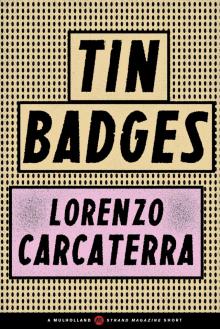 Tin Badges
Tin Badges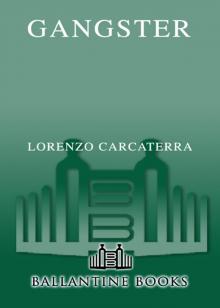 Gangster
Gangster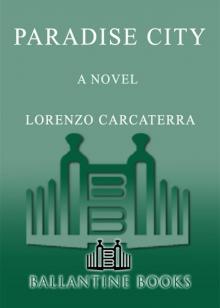 Paradise City
Paradise City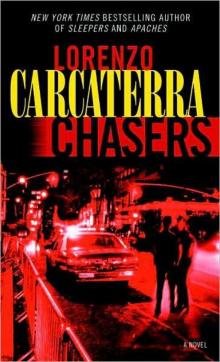 Chasers
Chasers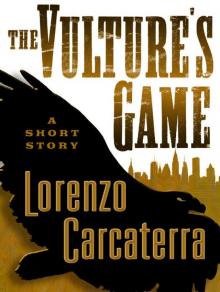 The Vulture's Game
The Vulture's Game Payback
Payback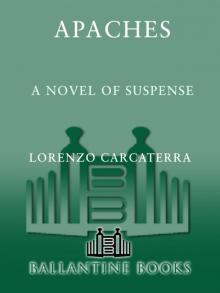 Apaches
Apaches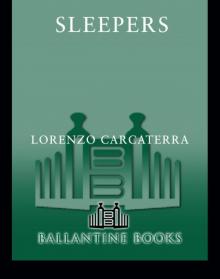 Sleepers
Sleepers The Wolf
The Wolf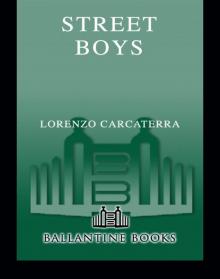 Street Boys
Street Boys The Wolf: A Novel
The Wolf: A Novel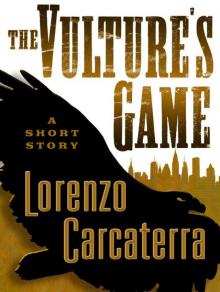 The Vulture's Game (Short Story)
The Vulture's Game (Short Story)